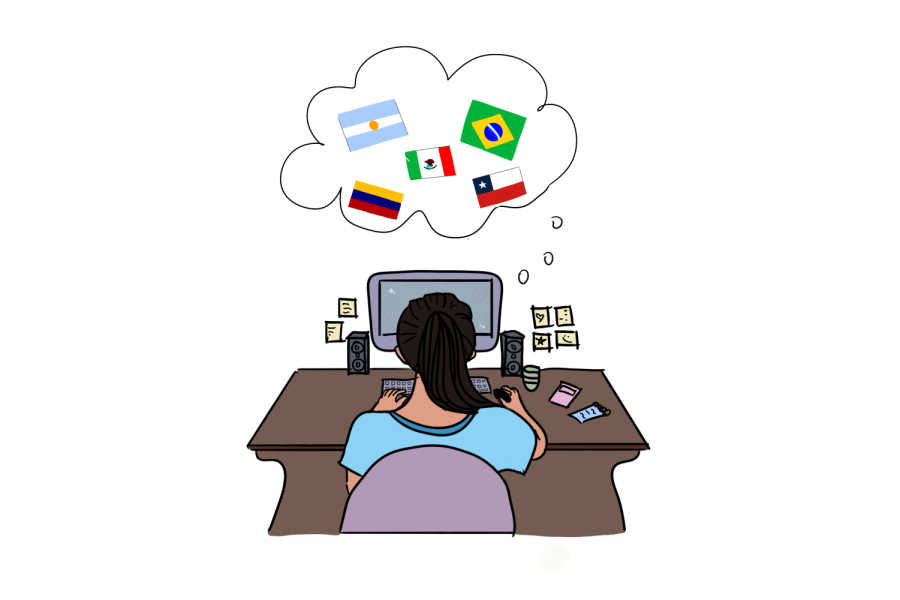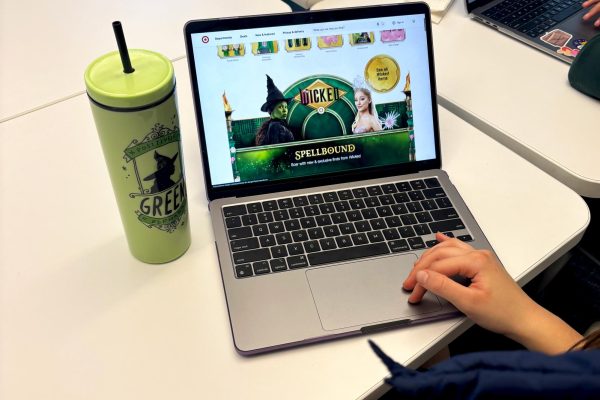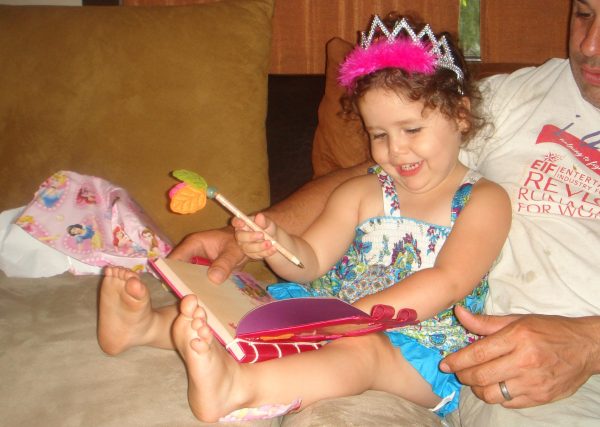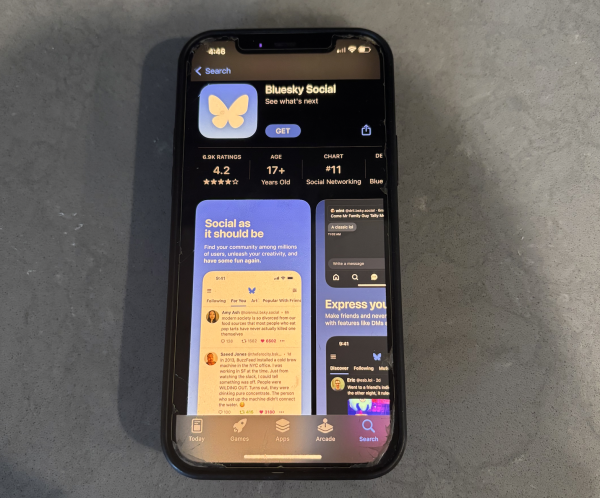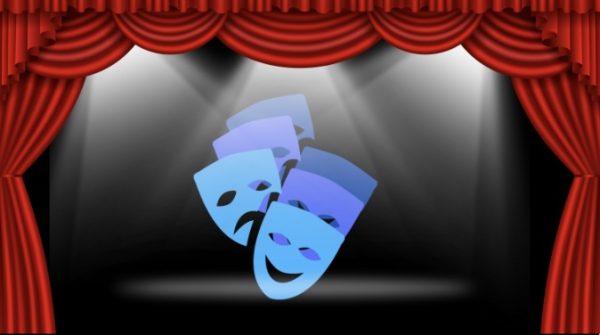Op-Ed: My Latine studies class changed my life
Photo credit: Graphic Illustration by Sydney Frank
A girl sits in front of her laptop and does work for her Latine Studies course. This year, I enrolled in my first ever ethnic studies course, and it has erupted a passion in me in this field. It has also helped me feel represented in history curriculums.
Note: In efforts to be gender-inclusive, Lizette Gonzalez used “Latine” instead of “Latino” throughout this piece.
The East LA Walkouts. Las Adelitas. The Brown Berets. All of these moments are integral to my own history as a Chicana in Los Angeles. However, I wouldn’t be surprised to hear that not many people, including other Chicanos, know what these historic events or organizations are.
It all began in Ms. Niles’ eleventh grade history class. In one of our units, we learned about the racialization of different ethnic groups in the United States. Through this unit, I found a special magic that was often always buried. Learning about America’s origin story is vital, but it’s also crucial to learn about other groups of people who have helped shape the country into what it is today. Their stories are equally, if not more, important.
The lesson focused on Chicano identity prompted me to sign up for a OneSchoolhouse course called Latina/o/x Identity in the United States. It didn’t even take a week for me to fall in love with the class.
As I learned about people who looked like me and fought for the right to define themselves, I felt a mixture of pride and genuine interest. It was also inspiring to learn about other Latine experiences that differed from my own. I learned about Afro Latinos, the tumultuous relationship between Puerto Rico and the U.S. and the impact machismo and anti-immigrant rhetoric has had on my community.
Although much of the material paralleled my own experiences, I still encountered new and uncomfortable narratives. That was the beauty of it. I now have the knowledge and vocabulary to bring up conversations in my dinner table that I was afraid to before. I feel empowered in my own history and brave enough to try to break generational traumas.
Some of the most impactful assignments I’ve ever done were in this course. We learned the origin of the word “chingona” that translates itself to “badass.” In Spanish, however, it has a negative connotation. It was eye-opening to read how this word stems from a woman named La Malinche who was the right-hand to Spanish conquistador Hernan Cortes.
Her story is infected with patriarchal and colonial bias, so learning about how Latina historians reframed narratives like these and took back the word “chingona” as a way to empower themselves changed the way I thought about myself.
This course was also heartbreakingly difficult. In another lesson, I engaged in a discussion with my teacher about the El Paso and Uvalde shootings that primarily affected the Latine community in Texas. It was hard to balance my interest to analyze these events in a scholarly fashion with the fact that we were also talking about hate crimes against my own people.
Nevertheless, I found solace and strength within representation. For the first time in high school, I had a Latina teacher. It meant a lot to me that Señora Rosas knew exactly what I was feeling, and because she did, she pushed me even more. Reading her comments on my work in Spanish and even referring to her as Señora Rosas made me feel at home.
This class changed my life. I am now aiming to study political science and Chicano studies in college. The passion that erupted in this class is one I don’t ever want to let go of.
A study from Stanford University showed that ninth graders who took an ethnic studies class increased their attendance and academic performance. We can’t wait until college; not only do these courses being offered in high school help us develop critical thinking skills and self-esteem, but they also help us develop our voices, especially those of students who haven’t been represented.
I’ve seen the impact of ethnic studies firsthand. I teach weekly workshops to diverse high school girls across the country through a nonprofit I helped build named DemocraShe. Every week, I see the faces of young girls who share my passion for diversifying our history. I see the younger me who was fighting to find a space where she can learn about people who looked like her. Representation in our educational curriculums changes lives.
There is an unnamable power in teaching diverse narratives. Yes, it’s difficult and ugly, but it’s needed.
According to assistant professor at the University of Pennsylvania Ebony Elizabeth Thomas, past history classes have “excluded the histories, knowledge and perspectives of those who were not white, male, cisgender, heterosexual, able-bodied and Christian, although people from all groups contributed to the world that we know today. Ethnic studies is essential because it provides young people access to the full spectrum of human knowledge, not just parts of it.”
It’s crucial for both students who identify with the curriculum and those who do not to engage with it. For example, a classmate of mine didn’t identify as Latina, but I was able to engage in conversations with her that I learned so much from. Ethnic studies is important for students of color, but it’s also important for white students.
If you ever have the opportunity to take an ethnic studies class or a history class besides U.S. history, I urge you to take it. Lean into the discomfort and embrace it.
Through education, the change our world needs can happen faster and more respectfully. We can’t change until we acknowledge each of our truths, experiences and voices.
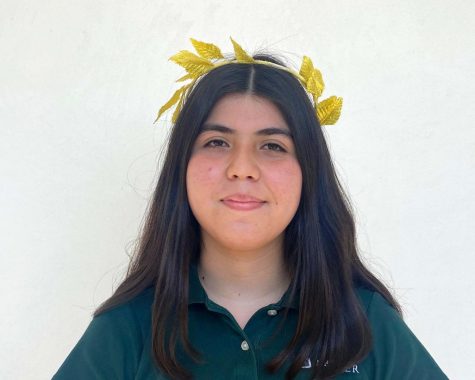
Lizette Gonzalez joined the Oracle as a staff reporter in 2019 and was Features Editor in 2022. She served on the executive board of Hermanas Unidas. In...



